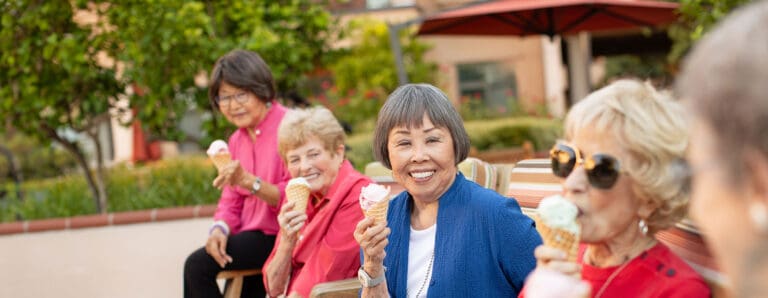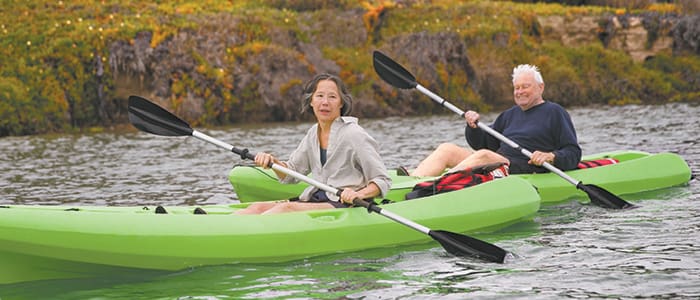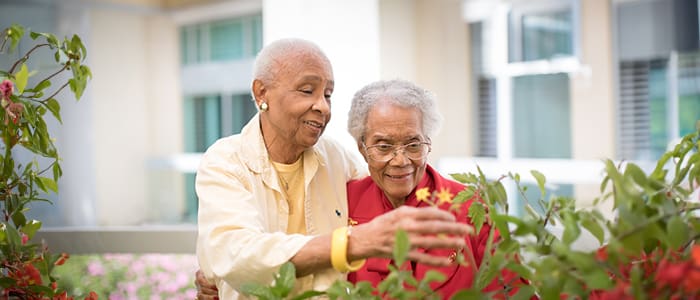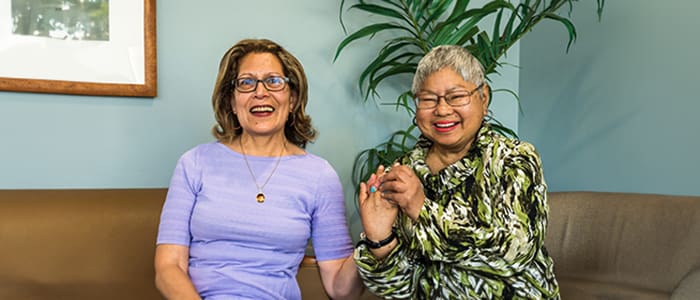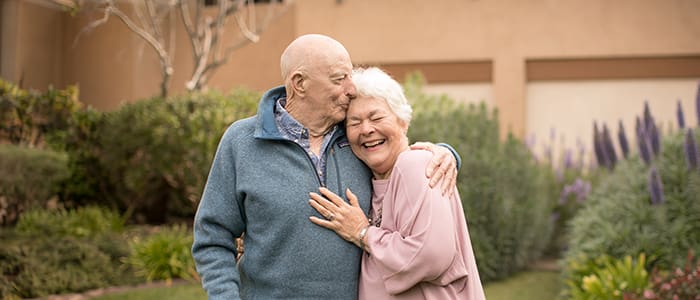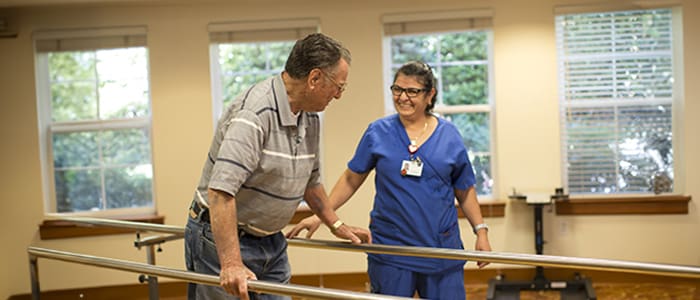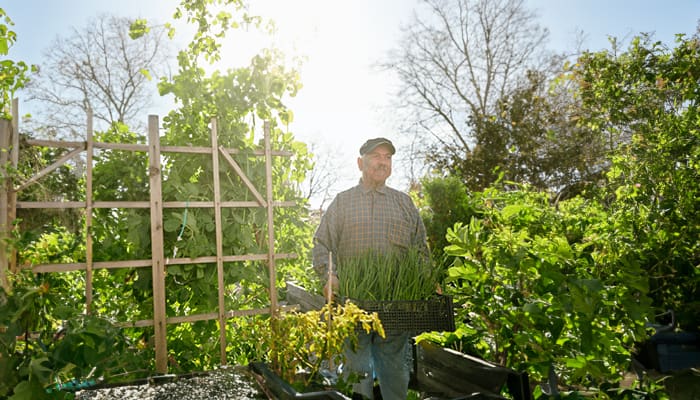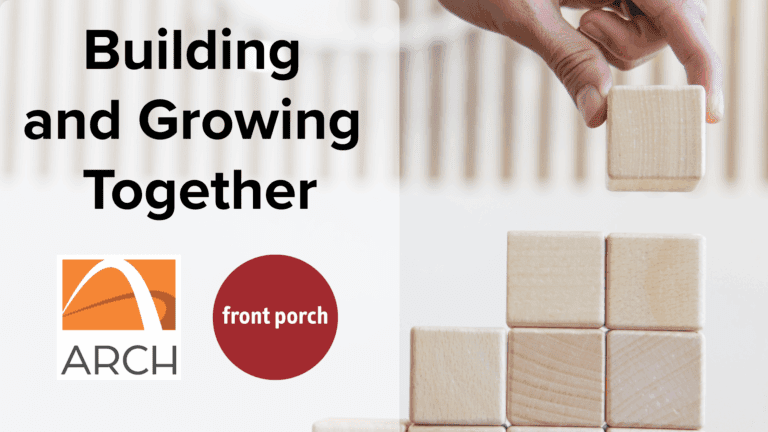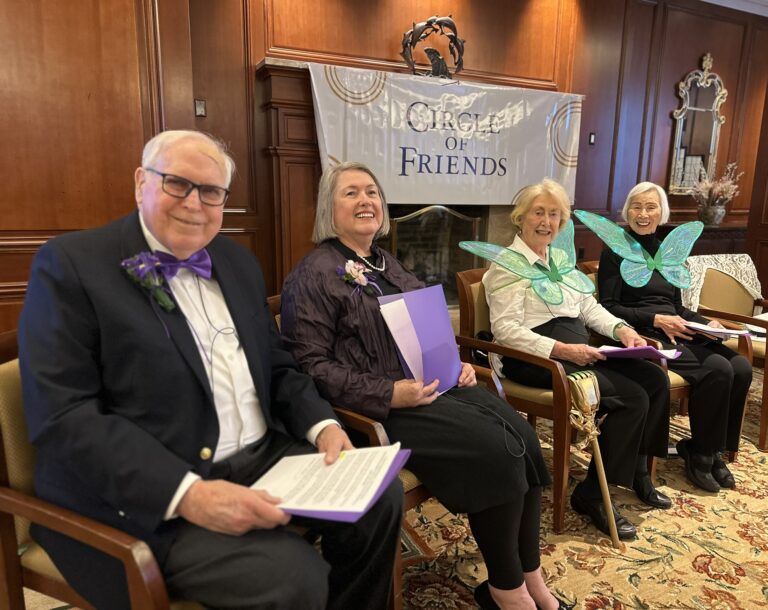July 9, 2020
Considering Community Living
What prompts someone to consider moving to a retirement community – and what is it really like to live there? More than 150 prospective residents recently joined together on a Zoom call to hear from a panel of Covia community residents about their choice of community living.
“When my husband died, I was living alone in a new home that we had just remodeled. I was really alone,” said Sharon, a resident of Spring Lake Village in Santa Rosa. “Friends encouraged me to come and visit the community and I found it so welcoming. There are so many things to do and people to see that it’s enriched my life so deeply.”
Many echoed the importance of engagement with others as a major plus of community living.
“I wanted to live near my children but wanted to be with peers, in a vibrant community,” said Judy, a San Francisco Towers resident.
“There’s a welcoming committee that arranged for us to meet others over meals,” said Chuck, a resident of St. Paul’s Towers in Oakland. “It’s one way we started to understand the community. We have relationships with people we met when we first moved in.”
The supportive continuum of care was another key priority in evaluating a move to a community.
“One alternative for people is to stay at home and become increasingly incapacitated, and have to have family or someone hired to take care of you. The other alternative is a community with the opportunity to see people who model that transition — from being able to do so many things on your own to when you’re not able to do so much,” said Raymond, a resident of Canterbury Woods in Pacific Grove. “It’s the last phase we don’t tend to think about for ourselves. That’s part of life. In a community like this, you have support and some role models that you wouldn’t have if you were on your own.”
Judy added that “With a background in critical care nursing, I very carefully evaluated the health care continuum. I’m very impressed with the way that Covia has really observed to the fullest all of the CDC recommendations during the pandemic.”
Staffing levels and quality of service in a community were a key criteria for many residents.
“Staff have been wonderful, especially during the pandemic. And we have wonderful resident health services staff; they’ve all bent over backwards to make life easier for us,” said Judy. “At first my family was very concerned when they saw the news [about the pandemic in congregate living] but you want to be in a place that is stringent and careful. My family has been very reassured by the staff competency and quality.”
Sharon commented that she appreciates that staff get to know residents individually. “The staff really take pride in the work they’re doing. The dining staff we see every day and each of more than 400 residents is greeted by name,” she said. “They are exceptionally competent. It’s an amazing variety of food. It’s one of the most nurturing places one could be, even more so in an epidemic.”
In addition to health care support, a community of peers and friends, and quality staff, every individual has unique priorities – and residents stressed the importance of knowing your own personal priorities.
“Take stock of the things you need and look at places through that lens,” advised Katie from Canterbury Woods. “I came and stayed overnight and discovered the distant sound of people moving about was reassuring to me.”
“For us, most of the places we looked at were remote and we wanted to be able to go out and get a cup of coffee on our own,” noted Richard.
Sharon, who like many residents retired from a demanding professional career, recommended considering how you might spend your time. “Look at the activities, performances and events that are available,” she advised. “Even during the pandemic, we have closed-circuit TV with exercise classes and performances and classes. I think it’s important to look at the daily life options you have.”
“We had criteria for physical facilities and architecture and we had geographic criteria,” said Peggy from Canterbury Woods. “But when we have lunch with people who are looking at our community as an option, my main message is ‘every retirement community has a culture, a people culture, that’s unique.’ I encourage people to have as much contact with people who live in a community and stay at the place for a couple of days so you can uncover who people are.”
All the residents on the panel agreed that it’s important to understand your personal priorities, do your research and visit communities of interest.
One of the residents summarized the process, saying, “I did my homework and so I was ready when it was time to make the choice.”
For more information, please fill out the form below.
